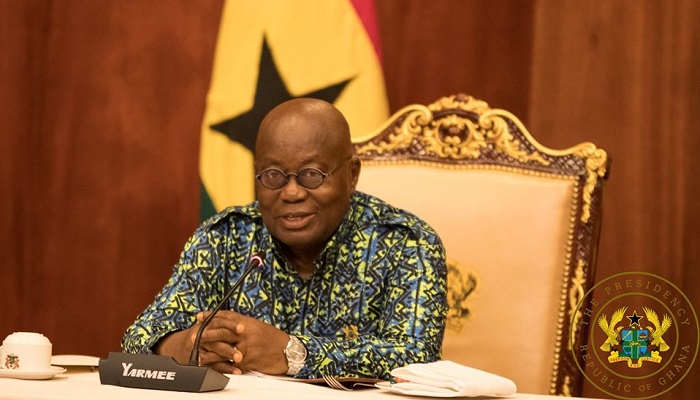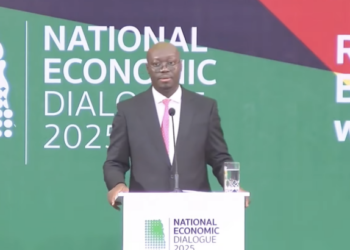Ghanaian households are likely to face significant headwinds from rising inflation and fiscal consolidation measures in 2022, including the implementation of the 1.5% tax on electronic payments, according to Fitch Solutions.
The combined effect of these, has warranted a revision of Fitch’s forecast for private final consumption to 4.0 per cent in 2022, slightly below the five-year pre-pandemic average of 4.2 per cent and contributing 2.5pp to headline growth.
That said, Fitch Solutions expects real GDP growth to slow to 4.4 per cent in 2022, from 5.4 per cent in 2021, as inflationary pressures rise and investor sentiment weakens. Indeed, after stronger-than-expected Q4 2021 data of 7.0 per cent year-on-year, bringing full year data to 5.4 per cent, “we see rising economic headwinds in the coming quarters”.
“In 2022, we expect elevated inflation and fiscal consolidation efforts to weigh on private consumption… Indeed, our forecast implies that Ghanaian growth will remain below trend- growth averaged 5.8% over 2015-2019 in 2022.”
Fitch Solutions

Progress in Vaccination
Despite the expected headwinds, the research firm also pointed out that, private final consumption will benefit from an improving epidemiological situation, facilitated by the ongoing rollout of Covid-19 vaccines.
As of March 31, 2022, 16.0 per cent of the Ghanaian population had received at least two vaccine doses, which is roughly in line with the Africa regional average (15.3%) and ahead of some of its West African peers, including Nigeria (6.3% on April 7, 2022) and Burkina Faso (5.8% on April 8, 2022).
“As the vaccination drive gathers pace, we believe it is unlikely that the government will re-impose new restrictions that would significantly weigh on economic activity. Indeed, most domestic restrictions on in-person activities were lifted on March 28, providing tailwinds to consumer spending.”
Fitch Solutions
In addition, limited fiscal space is likely to cap capital spending, with public sector wages and interest payments accounting for roughly 53.0 per cent of total planned government spending in 2022.
“We expect that elevated inflation and fiscal consolidation will present headwinds to Ghanaian households over 2022. As a result of the rapid weakening of the cedi (we forecast the 2022 exchange rate to average GHS7.25/US$, from GHS5.91/US$ in 2021) and rising global commodity prices following Russia’s invasion of Ukraine, consumer price inflation increased to 19.0% year-on-year, the highest rate since 2009.”
Fitch Solutions
The Ghanaian purchasing managers’ index (PMI) came in at 46.9 in March, 2022, the lowest reading since May 2020, during the height of the pandemic, and below the 50-level threshold.
According to Fitch, this signals an expectation that manufacturing output is set to decline and that business conditions are deteriorating, fueled by elevated inflation, the depreciation of the cedi, tightening monetary conditions (the BoG hiked its policy rate by 250 basis points in March, 2022) and growing concerns among investors around Ghana’s fiscal position.
In 2023, Fitch forecasts that growth will accelerate slightly to 4.8 per cent- although still below the 2015-2019 average of 5.8 per cent. “We expect inflation to come down, averaging 9.0%, which will improve purchasing power of Ghanaian households and support private final consumption,” Fitch said.
READ ALSO: FIFA Fines Nigeria CHF150,000 For Misconduct During WC Playoff Against Ghana





















